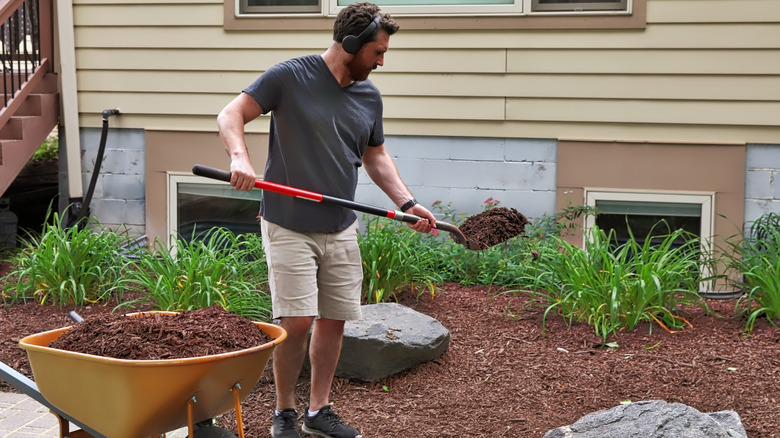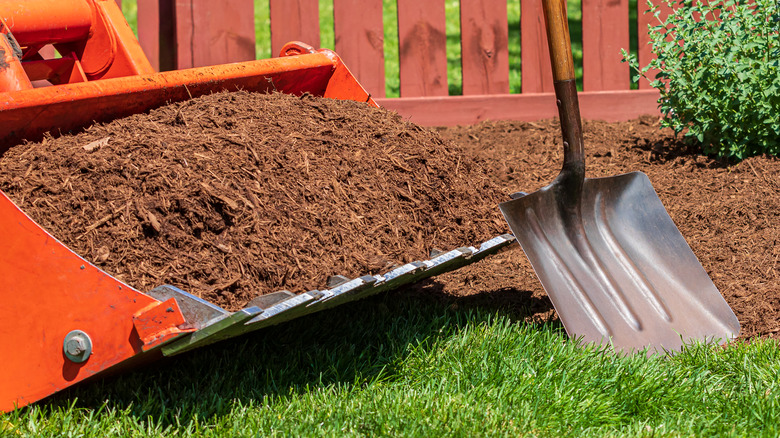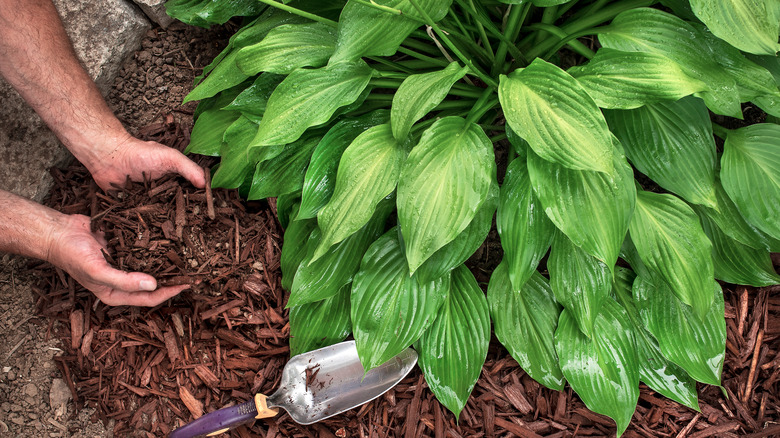What Happens To Your Garden If You Use Too Much Mulch
Adding mulch to your garden can help with soil temperature and moisture retention, and it also keeps the roots of your plants healthy and guards against weeds. While mulch can be extremely beneficial, too much of it will ultimately harm your plants. If a layer of mulch becomes too thick, it'll mean less oxygen is available in the soil, which will then suffocate the roots of your plants. The roots may also grow into the mulch in an effort to get more oxygen, but if the mulch becomes dry, the roots will as well.
Mulch that's more than 2 or 3 inches deep is likely too much for a garden. Besides limiting the availability of oxygen, an abundance of mulch creates issues with water. While a few inches of mulch will help your soil retain water for your plants, more than that could end up repelling water. Rather than reaching the ground and the roots of your plants, the water won't be able to get past the thick layer of mulch.
How excess mulch affects your garden
If there's too much mulch in your garden, water may become trapped underneath the thick layer of mulch, unable to dry. This leaves your garden and plants susceptible to fungal infections. This may also create another layer that keeps water from reaching your plants' roots. Sam Schmitz, a horticulturist, told Better Homes & Gardens, "Fungal mats can develop and actually repel the water you are trying to conserve by applying mulch to begin with. One inch of mulch is plenty and more economical."
Further, if the mulch you're using is made of freshly chipped wood, it could deplete certain nutrients in the garden's soil. Speaking to the University of Georgia's College of Agricultural and Environmental Sciences Newswire, UGA Cooperative Extension coordinator Henry Hibbs explained how fresh wood chips impact soil. "Fresh wood chips, like those from old Christmas trees, are mostly carbon and will steal nitrogen from the plant's soil in their urgency to begin composting," he said. Rather than using fresh wood chips for mulch, Hibbs suggests allowing the chips to sit for several months first and then applying older wood to your garden.
How much mulch is the right amount
Though different gardens or landscaping projects vary in how much mulch they need, 2 or 3 inches of depth is generally an appropriate amount for vegetable gardens and flower beds. If you're worried this will be too much mulch, try starting with an inch and then increasing the thickness if a 1-inch layer doesn't seem to be protecting your plants. Henry Hibbs also mentioned to CAES Newswire that excessive mulch can attract rodents, such as rats, because they like to hide in it. This is another reason why it's important not to be overzealous when applying mulch.
Additionally, making sure the mulch in your garden isn't actually touching the stems of the plants is a good idea. When mulch is right up against a plant, it can cause damage. If you're looking to lay wood chips to protect your garden during winter, 3 inches will work well, but make sure to get rid of it before new growth in the spring.


